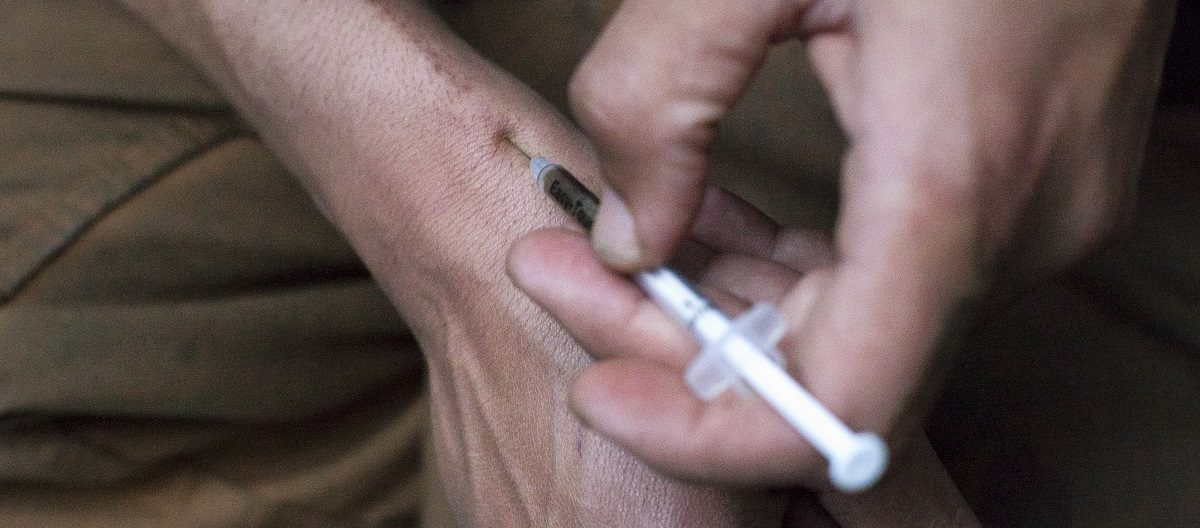Oregon lawmakers are pushing to bring back penalties for drug possession just a few years after decriminalizing hard drugs, according to The New York Times.
In 2020, Oregon passed Measure 110 and became the first state in the country to decriminalize hard drugs such as cocaine, heroin, oxycodone and methamphetamine, according to OPB, a local media outlet. On Friday, however, state senators passed HB 40002 by a 21 to 8 vote that would reimpose criminal penalties for drug possession and sent the bill to Democratic Gov. Tina Kotek’s desk, according to the Times. (RELATED: Oregon Declares State Of Emergency To Address Fentanyl Crisis After Decriminalizing Hard Drugs In 2020)
“It’s clear that we must do something to try and adjust what’s going on out in our communities,” Democratic state Sen. Chris Gorsek, who formerly supported decriminalization, told the Times.

A man injects himself with heroin using a needle obtained from the People’s Harm Reduction Alliance, the nation’s largest needle-exchange program, in Seattle, Washington April 30, 2015. (REUTERS/David Ryder)
The bill if signed will increase penalties for unlawful possession of drugs starting on Sept. 1, 2024. Possession will be considered a “drug enforcement misdemeanor” and also requires new protocols to discharge those charged with possession.
In December, Kotek asked lawmakers to pass legislation making the public possession of hard drugs a criminal offense, and a month later in January announced a 90-day public health emergency regarding the fentanyl crisis in the state, saying that they had “never seen a drug this deadly and addictive.” By 2022, overdoses in Oregon had risen by 20% and the police received 11 overdose calls on one day in March 2023.
Meanwhile, the decriminalization efforts have proven unpopular as at least 60% of the state’s voters said that Measure 110 “made drug addiction, homelessness, and crime worse,” according to DHM Research. The city of Portland reinstated penalties in September that banned public drug use.
All content created by the Daily Caller News Foundation, an independent and nonpartisan newswire service, is available without charge to any legitimate news publisher that can provide a large audience. All republished articles must include our logo, our reporter’s byline and their DCNF affiliation. For any questions about our guidelines or partnering with us, please contact licensing@dailycallernewsfoundation.org.


